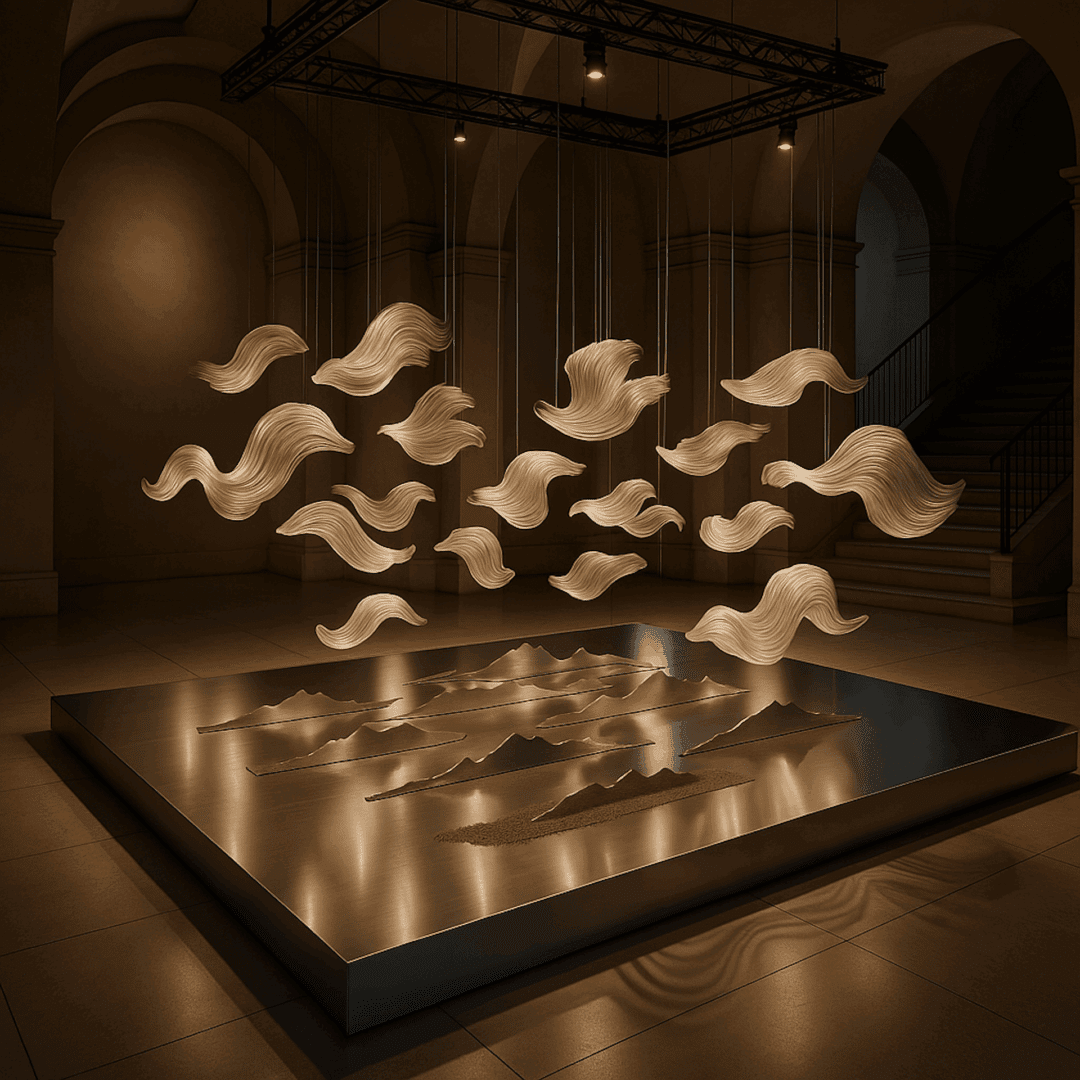London Design Biennale returns to the UK capital for its fifth edition from 5-29 June. This year, it takes place at Somerset House – a leading cultural venue celebrating its 25th anniversary. The theme for 2025’s programme is Surface Reflections, exploring “how ideas are fuelled by both our internal experiences and external influence.” It sees over 40 pavilions, and hundreds of designers and changemakers, come together from around the world to share ideas, confront global challenges and inspire audiences with thought-provoking installations. Victoria Broackes, Director, said: “We have brought together a powerful selection of pavilions that will challenge and inspire audiences with the belief that design has the power to change and improve the world around us. At a time of global uncertainty, it is now more important than ever to champion and celebrate international collaboration and gatherings. From ancestral wisdom to radical thinking about the future, this year’s Biennale is a valuable opportunity to come together to solve global problems with global solutions.” Here are five must-see pavilions to watch out for across the event.
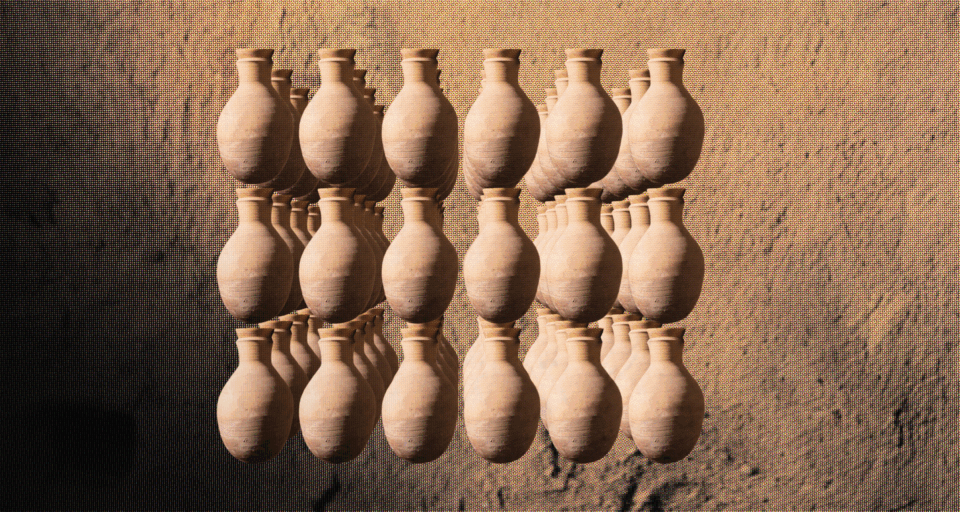
Oman | Memory Grid
For centuries, pottery in Oman has been more than a craft. Traditional vessels, shaped from the earth and carefully fired, held water and connected communities to the land. They embodied survival, resourcefulness and a deep relationship with nature. Today, they carry the stories of previous generations: those who created and relied on them. Memory Grid uses traditional Omani pottery to explore the balance between heritage and the digital age. Data is now an important resource, and this immersive installation repositions ancient water vessels as data storage. As visitors move through the space, they are encouraged to consider the shifting values of what we consider precious: what we keep, share and disseminate.
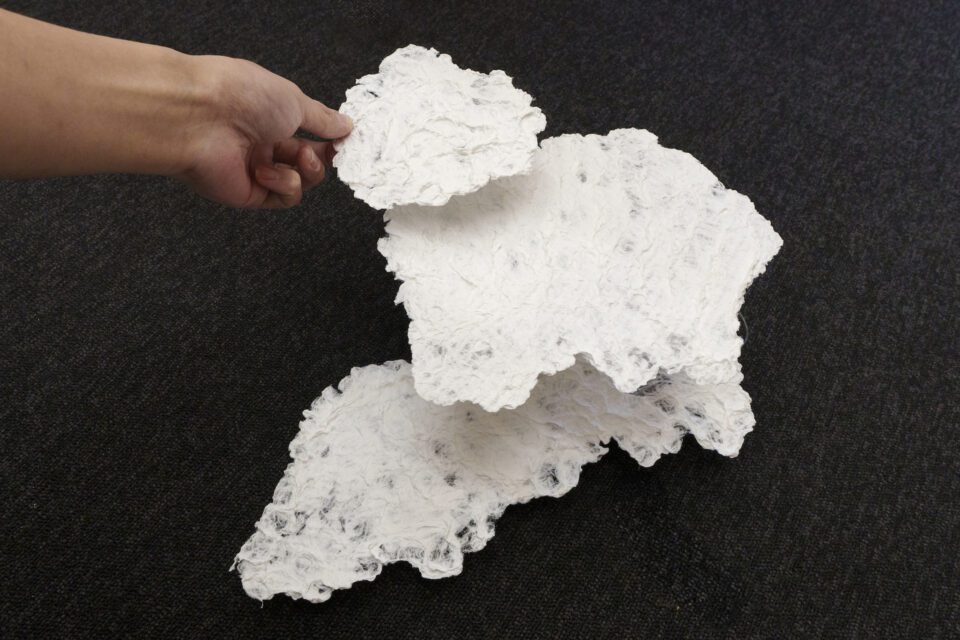
Japan | Paper Clouds Materiality in Empty Space
This installation, designed by SEKISUI HOUSE – KUMA LAB (The University of Tokyo) and curated by Clare Farrow, is dedicated to Washi paper, a traditional, high-quality Japanese paper with a 1500-year-old history. Paper Clouds, which cascades over Somerset House’s Nelson Stairs, celebrates the material’s durability, texture, translucency and lightness, whilst highlighting its structural potential across architecture and fashion. It promises to be an ethereal and immersive experience, with a soundtrack by violinist and composer Midori Komachi that includes audio of Washi paper interacting with the body.
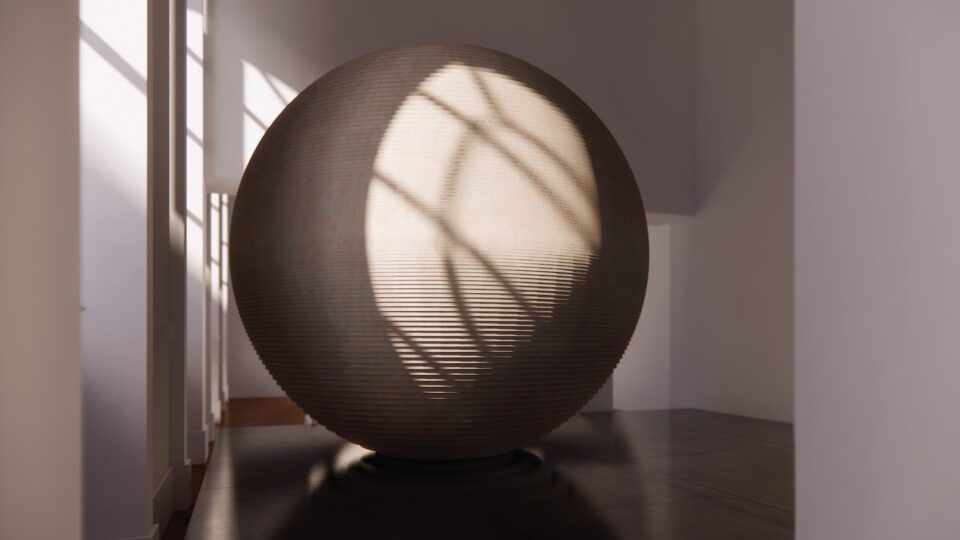
Malta | URNA
How do we remember those we have lost? The Maltese pavilion, titled URNA, reimagines rituals for death and memorialising, anticipating the future role of cremation in Malta following its legalisation in 2019. It reflects on the importance of the rituals of columbarium, ossuary and wake, replacing traditional burial practice with sculptural, spherical modules in which cremated remains can be embedded. The centrepiece of URNA is a striking 2.4-metre limestone sphere. Conversations around death are often regarded as difficult, uncomfortable or taboo. This installation is sure to inspire meaningful and thoughtful dialogues around remembrance, encouraging audiences to reflect on cycles of life, memory and renewal.
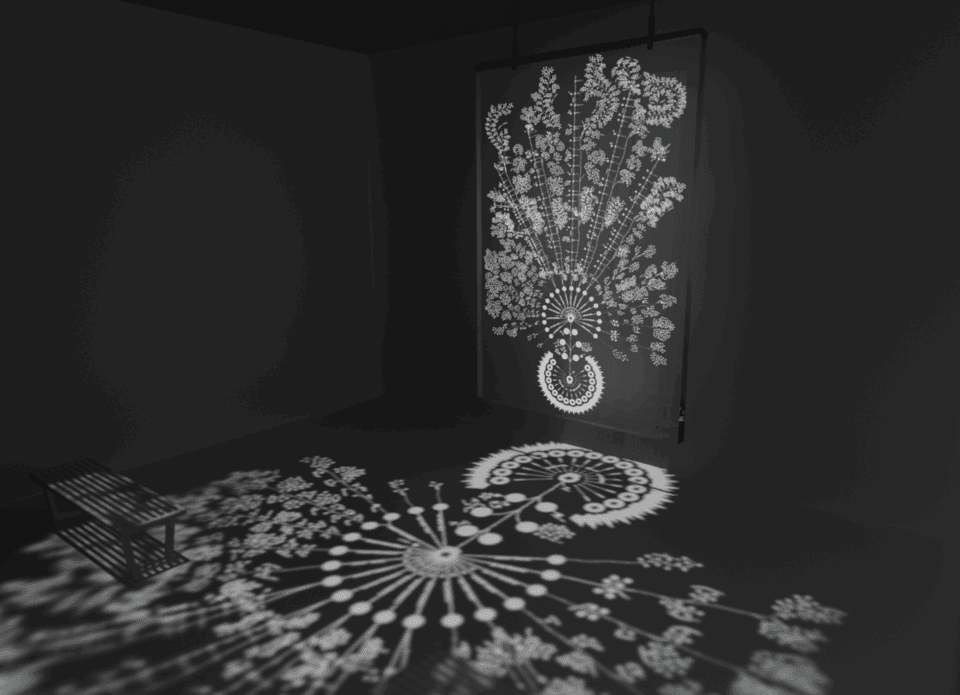
Rachel Botsman | Roots of Trust
In 1855, the first known organisational chart was created. It’s an object that forever changed people’s working lives, yet it has sat unrestored in the US Library of Congress for over 170 years. Now, acclaimed author and artist Rachel Botsman brings the artefact – which is an object of surprising beauty – to life. Titled Roots of Trust, it invites viewers to visualise how structures of work have changed, the way information is disseminated and how interpersonal relationships and trust are formed. The London Design Biennale 2025 will be the first time this object has been reimagined in an art or design exhibition.
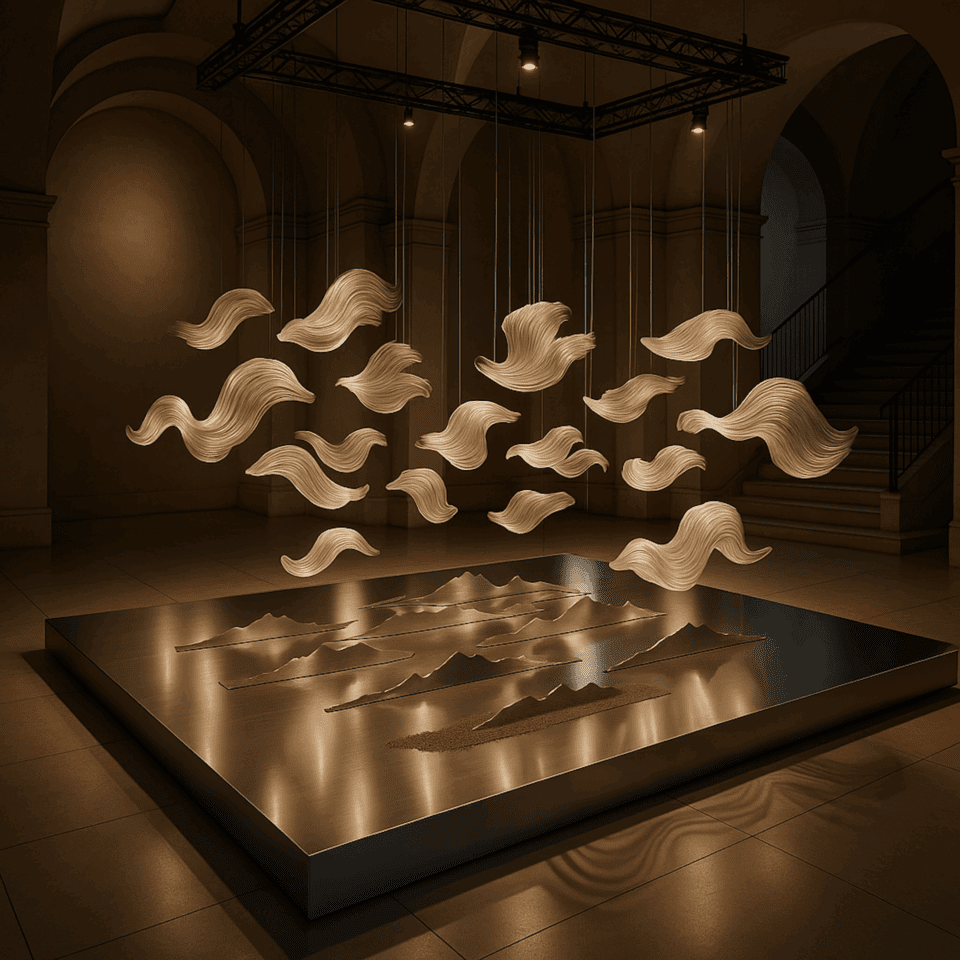
Turkey | Emotional Reflections: The Soul of Seven Horizons
Turkey’s pavilion responds directly to London Design Biennale’s theme of Surface Reflections, which was set by the event’s Artistic Director, Dr Samuel Ross MBE. This immersive and mesmerising display is a place where “emotional landscapes and external realities intertwine through sculptural forms.” The Soul of Seven Horizons offers a sensory space where light, movement and sound collide. It’s designed to be conceptual; a pavilion that reflects on the hidden forces that shape our feelings and perceptions of the world. The goal: to encourage visitors to explore, reflect and find their own meaning in the experience.
These pavilions are part of a much wider programme that foregrounds design-led solutions to fundamental issues. Yet they underscore the Biennale’s core ambition: to harness the power of design in making sense of a complex world. From honouring cultural memory to reimagining the future of work and mourning, each space invites reflection – on what came before us, what drives us now, and what might happen next.
London Design Biennale: Surface Reflections runs 5-29 June 2025 at Somerset House, London.
For the full programme, click here.
Image Credits:
1. Turkey, ‘Emotional Reflections: The Soul of Seven Horizons’ © Halise Karakay.
2. Oman, ‘Memory Grid’ © Courtesy of Oman pavilion.
3. Japan, ‘Paper Clouds: Materiality in Empty Space’ © Kuma Lab.
4. Malta, ‘URNA’, Conceptual Render, © Design by Ebejer Bonnici, Courtesy of Malta Arts Council.
5. Rachel Botsman, ‘Roots of Trust’ © Rachel Botsman.
6. Turkey, ‘Emotional Reflections: The Soul of Seven Horizons’ © Halise Karakay.


